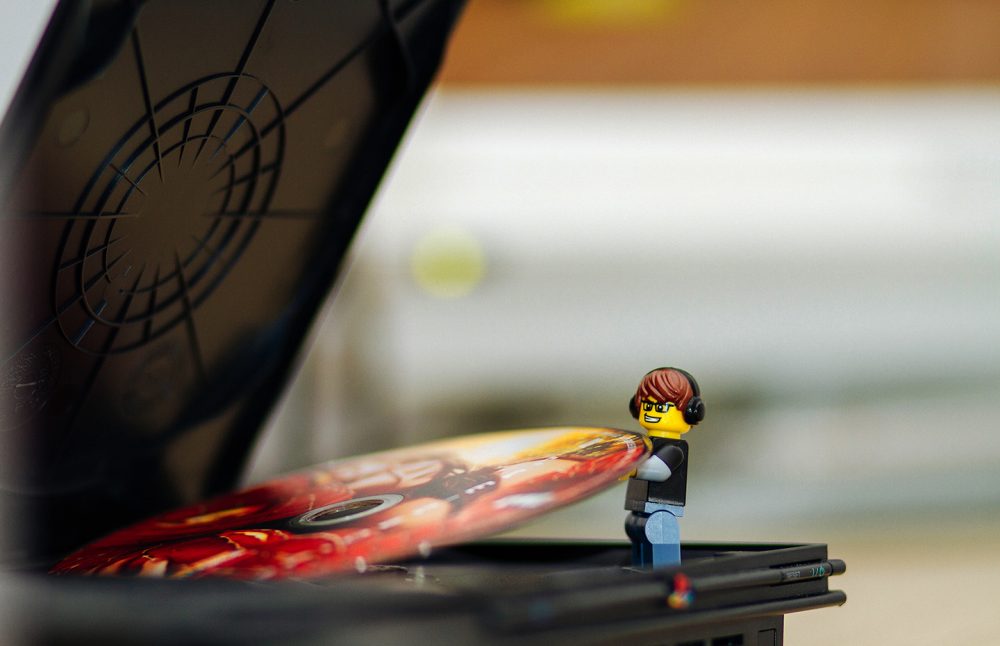As a parent I seem to spend the vast majority of my time these days negotiating. No, not negotiating a pay rise, deal on the latest gizmo – or even negotiating which part of the family we will be spending Xmas with. No, none of these. My life instead is a long tedious, never-ending negotiating session with my child over the time allowed on the Xbox. Everything now, and I mean everything, is measured by it.
“How many minutes left until I can go on the Xbox”
“If I get my homework done, can I go on the Xbox?”
“All my friends are allowed on the Xbox for 24 hours a day, so why not me?”
“No Daddy, the Internet is not down. You have unplugged the router. I am not stupid.”
The only relief of sorts is when I am negotiating with him along the same lines about his phone which somehow he has also managed to glue to his face at the same time as playing the Xbox.
In fact, when I think about it, my conversations with my teen are almost always, tangentially or otherwise, related to phones and Xboxes.
In truth, if I could rewrite history, I would never have allowed the wretched thing in the house.
In the early days it seemed a particularly wonderful way to engage my child so I could concentrate on something important like washing and ironing. Except, I learned too late, big mistake. BIG.
Washing and ironing (ie “me-time” – how far we descend to what constitutes “me-time” as a parent that the ironing seems a relief) are clearly utterly irrelevant when I am now facing up to the reality that the Xbox has probably permanently wrecked the life chances of my child. It is a long distant memory, today, when I could not drag a book from my son; I am not even sure he knows what one even is now.
So I grab small amounts of justification where I can for my endless failures to peel my teen off the console.
I learned today that the winners of an Esports competition, Tundra Esports, playing a game I have never heard of called “Defence of the Ancients 2” took home around AED 31M in prize money. 1.7M people watched the final online and around 10,000 live at the Arena in which it was held. More tellingly, in the context of my son, they play games (“””train”””) for a minimum 12 hours a day.
With my son, the games of choice are Roblox and Fortnite, so I quickly looked up whether there are a few million kicking around for him from them. First Roblox:

Zero. Not even five dirhams. Now I absolutely do not believe we should measure the value of everything (or probably anything) in monetary terms, but it is somewhat galling to see that he is absorbed in something that no one will even give a dirham for.
Fortnite is a different story. Apparently Epic’s first Fortnite World Cup Finals featured one of the biggest prize pools in esports history. The inaugural tournament was split into two main events. Kyle “Bugha” Giersdorf earned $3 million in the solo finals, while David “aqua” W and Emil “Nyhrox” Bergquist Pedersen shared $3 million after winning the duo finals. The total value of the prizes was north of AED 110M.
Of course, the elephant in the room is that these tournament winners are the Olympians of the gaming world – I am not entirely convinced of my son’s prospects. He seems to be far more interested in enjoying himself than competing with anyone.
But the truth is that Esports is getting bigger. A cursory search for jobs in esports pulls up a site called hitmarker.net. The first thing to strike me is the number of blue-chips looking for talent, including, with all the usual suspects like Microsoft and Nintendo who have been purveyors of my child’s addiction, the BBC, Coca Cola and Amazon:

There are, it seems, exactly 11,511 jobs currently being advertised in games and esports in the UK, US and Canada. The site does not deal with UAE jobs unfortunately. Typical job roles seem to be artists, animators, programmers, games testers, translators, social media executives and marketers. More worrying, I found not a few roles in the area of Trust and Safety – Self Harm. We all know as parents that the new online world, whatever its merits, has opened up a world of pain that, imaginary or otherwise, we simply did not seem to have growing up in our golden childhoods.
I then did a quick experiment with Indeed, a UK job site (chosen for an experiment as we are told that the gaming industry is bigger in the UK than anywhere else in MENA). Typing in Esports produces 150 jobs. Typing in Games was more positive, producing 19,125 live jobs. I then typed in Accountant and pulled up…. 21,848 jobs. Remarkably, although admittedly a very basic and probably ludicrous experiment, there is not a lot in it: there is about as much demand for just games sector jobs as there is for accountants across every industry known to man.
And Esports and gaming is big business. New Zoo claims:
- In 2022, the global esports audience will grow +8.7% year on year to reach 532 million. Esports enthusiasts—those who watch esports content more than once a month—will account for just over 261 million.
- The number of esports enthusiasts will grow to 318 million in 2025, with a CAGR of +8.1% (2020-2025). In 2025, the total audience will surpass 640 million.
- Esports will generate nearly $1.38 billion in revenues globally by the end of 2022. China accounts for nearly a third of worldwide esports revenues.
- Digital and streaming are the two fastest-growing revenue streams for esports, with 2020-2025 CAGRs of +27.2% and +24.8%, respectively. Growing awareness around digital assets and NFTs will likely boost investment and fan interest in acquiring in-game items of esports IP.
Statista claims the games sector is even bigger:
- Revenue in the Video Games segment is projected to reach US$197.00bn in 2022.
- Revenue is expected to show an annual growth rate (CAGR 2022-2027) of 7.67%, resulting in a projected market volume of US$285.00bn by 2027.
- In the Video Games segment, the number of users is expected to amount to 2,833.1m users by 2027.
- User penetration will be 32.4% in 2022 and is expected to hit 35.6% by 2027.
- The largest segment is Mobile Games with a market volume of US$152.50bn in 2022.
- In global comparison, most revenue will be generated in the United States (US$51,310.00m in 2022).
- The average revenue per user (ARPU) in the Video Games segment is projected to amount to US$79.92 in 2022.
So there is some kind of future here – maybe.
But what of screen time? Any benefits – apart from selfish “me-time” for parents? One major problem is that all this is relatively new. Yes I remember a Sega Megadrive thing from my youth – it engaged me for all but two minutes. But we have really only just entered the world of games, iPhones and Xboxes. All are around 15 years old, or less. No long term studies have been done – or are even coherently possible:
“It would be difficult indeed to run a long-term, randomized study in which children were assigned to different amounts of screen time each day and then tracked over their life spans to measure well-being outcomes. Imagine the look on a parent’s face when told their child would be required to watch six hours of television every day—or that they could never watch a screen at all.”
American Psychological Association
Apart from double taking about the 6 hours – I would be so lucky, the truth is that we are all literally flying in the dark. The American Academy of Paediatrics (AAP) and United National World Health Organisation agree that there should be no screens for kids under 2, and less than an hour a day for kids 2 to 5.
An hour for a two year old??!!! Clearly I am getting old.
As for older children, no one agrees anything accept the importance of “negotiation” – which takes us back to where I started.
So can I go on the XBox now?
No.
Why not
You have already been on it for 19 hours
Yes, so. Why not another hour.
Well, um, um, um…. Let’s negotiate. How about…. just half an hour.
No. Give me one good reason….
OK then. Just 1 hour…..
The whole thing is doomed.
A relatively new study headlines with the positive conclusion that:
” It seems that screen time itself is not strongly associated with adverse outcomes in 9- and 10- year old children.”
But…. when you actually read the detail, it’s not good news.
“Both weekday and weekend total screen time are moderately associated with greater behavioural problems including ADHD, poor academic performance and poor sleep quantity and quality.”
The only plus – and it is true in our experience, particularly during Covid when children were all but locked up, is:
“Conversely, screen time is positively associated with the quantity and quality of peer relationships.”
What the latter does not tell you is that using the Xbox means invariably his plugging in headphones to speak to said peers – which translates as locking out the rest of the world, including us, in its entirety.
All I can tell too, from my own family experience, is that getting homework done is a nightmarish affair of cajoling, pleading – let’s call a spade a spade…. begging, for him to do it. And even then, most of the concentration goes on his calculating how many minutes are left until Xbox time. I suppose it is helping his arithmetic.
It is not even too as if I can negotiate with LEGO®. Even LEGO® is integrating computers and Bluetooth, phones and PCs, into even its most beautiful new creations to try and keep the children engaged:
If I get it, it will be almost certainly be me building it too.
But was it so different when we were younger? Did I run to my homework, desperate to complete it? It’s so long ago, but I think I probably didn’t. I may tell myself I did, but the truth is I too was probably counting down the time until I could get outside and cause merry (a euphemism if ever there was one) mayhem in the real world rather than virtual one.
I just do regret that he does not read as much, anywhere near as much, as I did. He just does not enjoy it as much as the Xbox. It seems unspeakably sad to me. Am I just a Luddite?
Maybe, just maybe, one day it will come back to him.
If I could relive all this, I am absolutely certain that I would never have allowed an Xbox in the house. That is the only bit of certainty I do have.
But…. there are no guarantees that this would have been a good decision. I am sure he would have led a life more like mine, but the new world has moved on and we cannot live in the past.
What is there to do then but carry on negotiating about the Xbox, dream of him one day winning a few million on Esports and hope that ones day he leads a fulfilled life in an industry he clearly loves?
In the meantime, I rest all my hopes on school.
I have never, ever, prayed for anything more than his school will pick up the pieces of the mess I seem to have created.
There, there are, small mercies, absolutely no Xboxes allowed.
Further information
For more on how forward looking GEMS Education schools are providing qualification and subject pathways in esports, read here and here.
The official Xbox site can be found here.
Read more about the LEGO Grand Piano motorised IDEAS set here.
Have you a positive, or desperate, experiences to share about the impact of games consoles in your family. If you have them, do you think it was a mistake? Or are they a vehicle for joy and learning? What would you advise other parents? Let us know at [email protected]. We would love to hear from you.
© SchoolsCompared.com. A WhichMedia Group publication. 2022. All rights reserved.








































































Leave a Response